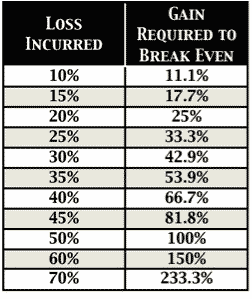Be careful how you use the following words and phrases as they become road blocks or worse take you down the wrong path.
Should– Phrases include: “The market should have” and “I should have”. Those phrases are often used to socialize losses. They are a strong signal something is off. They should be used to aid you in correcting your vision not make you feel better.
Must– Phrases include: “The market must…”, “I must make money”, or “I must trade”. The market does not have to do anything and either do you. When you use the word “must” it is hardly ever from a position of strength. The market knows when you are desperate and will take full advantage of you. Keeping your expenses as low as possible will make it easier to not make those statements.
Will– Phrases include: “The market will..” and “I will make money”. Once again the market does not like to be told what to do. It is the bratty kid screaming at the tops of his lungs. The word “will” relaxes your mind, similar to “should”, people use it to be lazy instead of a black background in an otherwise light picture. You can do everything right and still lose money. That is why trading is so effective at diminishing confidence. In most every activity, if you do everything right you are going to get the desired result. Doing the “right” things is bare minimum. Of course, over time you will get paid for doing the right things but it is never when you think it should be and hardly how much you anticipated. (more…)


